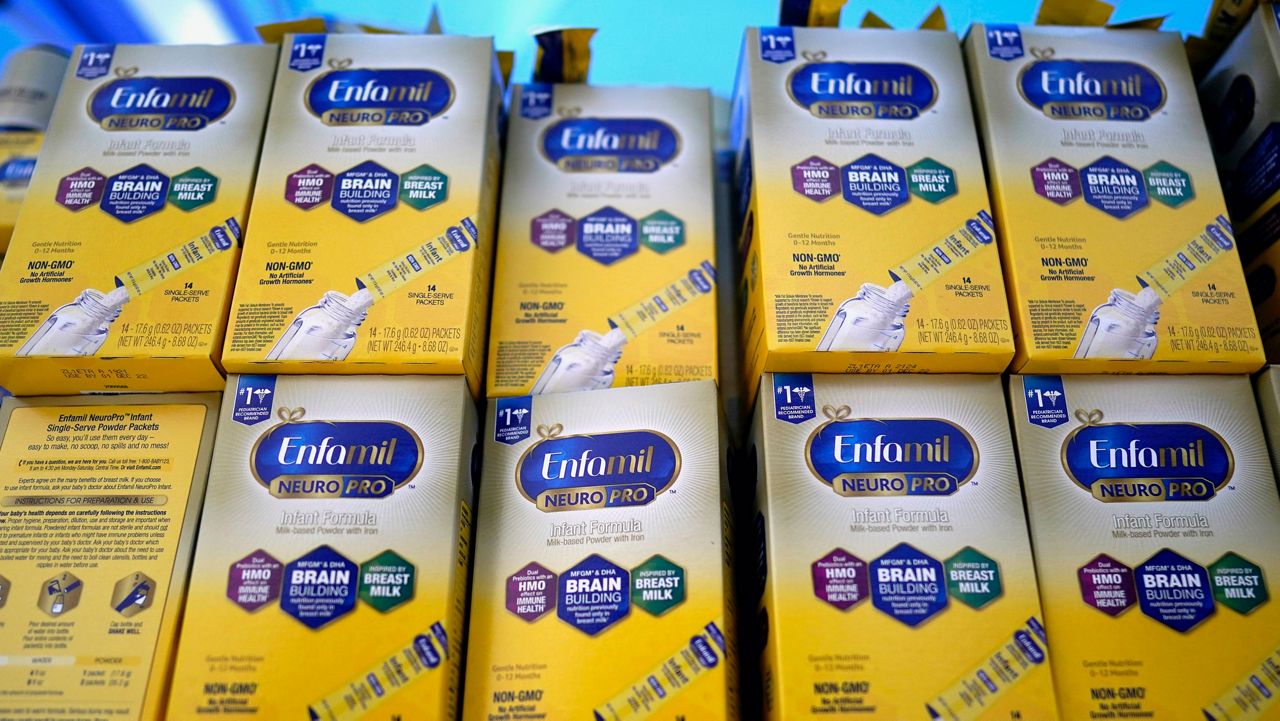The House of Representatives has voted in favor of two bills seeking to ease the ongoing infant formula crisis.
House Resolution 7791, the Access to Baby Formula Act, and HR 7790, the $28 million Infant Formula Supplemental Appropriations Act, both passed — though the Access to Baby Formula Act, which eases restrictions on those who get federal assistance to buy formula, passed on a broadly bipartisan basis, while the appropriations act was split along party lines.
The Access to Baby Formula Act, sponsored by Rep. Jahana Hayes, D-Conn., allows families on the Special Supplemental Nutrition Program for Women, Infants and Children to continue buying formula using their benefits should program-approved formula not be available during shortages.
It also creates waiver authority in cases of emergencies, disasters, and supply chain issues to ensure states can contract with manufacturers to secure formula. It also waives requirements that can slow down getting product on shelves, and establishes coordination between the Secretaries of Agriculture, and Health and Human Services during supply chain disruptions and food recalls.
The current formula shortage, which has been driven by both pandemic-era supply chain problems and a voluntary formula recall by formula manufacturer Abbott Nutrition, has greatly impacted WIC recipients, who use formula at nearly double the rate of other families, Hayes said.
“I know the feeling of desperation and stress that mothers, grandmothers and family members across the country are feeling as they are searching for formula for their children,” Hayes said, noting that families in her district have been coordinating on social media, waiting in lines, paying jacked up prices for formula, and watering down their supplies to stretch them out for another meal or another day.
In a joint statement, Hayes and Rep. Michelle Steel, R-Calif., thanked their colleagues for passing the legislation, which only faced nine “no” votes, all from Republicans.
“As a parent there’s nothing more important than ensuring the health and safety of your child. Families desperate to feed their babies shouldn’t have to face empty shelves because of government mismanagement and overregulation. This bipartisan legislation will provide certainty for recipients and manufacturers, ensuring this crisis doesn’t happen again,” said Steel.
The Infant Formula Supplemental Appropriations Act, HR 7790, faced a partisan vote, with all Democrats and 12 Republicans voting in favor; all “no” votes came from Republicans.
The bill sends $28 million to the Food and Drug Administration to increase staffing focused on the formula shortage, boost inspections, prevent fraudulent products from making it to market and get better data on the marketplace.
“The crux of this is providing infrastructure, if you will, in order to do what needs to get done,” Rep. Rosa DeLauro, R-Conn., told reporters at a press conference Tuesday.
The bills will now head to the Senate.



